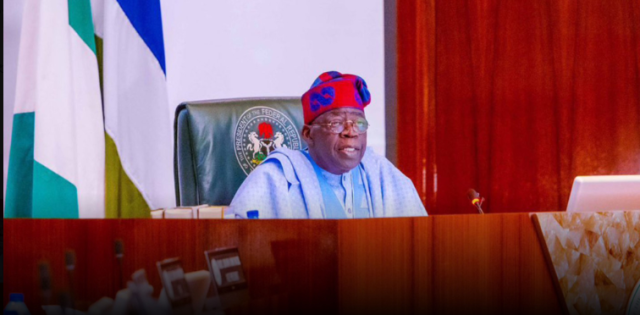Civic-tech platform BudgIT has evaluated President Bola Tinubu’s administration as lacking in fiscal transparency.
According to a report assessing the administration's first-year performance, BudgIT stated, "Fiscal transparency has decreased under President Tinubu’s administration.
The Budget Office has not yet released the 2023 Q2 Budget Implementation report, despite the requirement of the Fiscal Responsibility Act that it be released within 30 days after the quarter’s end.
The Federation’s Fiscal Accounts, which include receipts from all collection agencies and payments out of the Federation Account, have not been released since August 2023 when they were last uploaded on the Open Treasury portal."
Meanwhile, various economic experts have expressed differing opinions about the Tinubu-led government's performance on its first anniversary.
These opinions were shared on Wednesday in their respective assessments of the administration's performance.
According to a report from Analysts Data Services & Resources, President Tinubu surpassed his predecessor in his first-year performance.
The analysis, which evaluated performances based on 25 indicators across five segments of the economy (output and prices, financial statistics, international finance, public finance, and governance and institutions), showed that the Tinubu administration scored 53.6%, higher than former president Muhammadu Buhari's score of 48.8%.
"PBAT, along with the four other former presidents since 1999, is ranked on 25 indicators and the average scores are converted to percentages. Additionally, the report identifies some of the policies, programs, and interventions of the current administration to showcase their potential impact on the current economic situation.
It is noted that the first-year performance ranking of Nigerian presidents has been declining, from the highest level under Obasanjo (72.8 percent) to the lowest under Buhari (48.8 percent).
However, there is a turning point observed under the Tinubu administration, which has raised the overall first-year performance to 53.6 percent.
The report documents that the strong segment for the Tinubu administration is public finance (64 percent), while the weak segment is output and prices (40 percent).
Analysts at ASDR have advised the Tinubu government to involve the private sector in infrastructure provision to free up public resources, collaborate with development partners while maintaining independent thinking and policymaking in a citizen-centric manner, and prioritize worker welfare by engaging in discussions to increase wages and productivity."
"The coordinating minister should increase their visibility and make the process of policy formulation and implementation more objective, transparent, and evidence-based. It is important to keep citizens constantly informed about the costs and benefits of current reforms."
In its macroeconomic commentary titled 'One Year in Power: Assessing the Current Administration’s Policy Direction' issued on Wednesday, Meristem Securities Limited highlighted the administration's focus as of May 2023 and the extent to which it had implemented them.
"From the beginning, the administration has shown its dedication to creating a pro-growth economy that would improve both the micro and macroeconomic environments.
The President's manifesto and Policy Advisory Council report identified key areas for change, including the economy, agriculture, employment, infrastructure, oil & gas, and mineral resources, power, economic policy, digital economy, poverty alleviation, security, education, and healthcare."
The PAC report provided a detailed overview of the government's projected goals and accomplishments for the next eight years, subject to being re-elected for a second term.
The administration has implemented various strategic initiatives to boost government revenue, improve efficiency, and optimize spending as part of its fiscal policy.
Efforts have been focused on enhancing critical sectors to attract foreign investment, as well as negotiating partnership agreements with other nations.
Meristem emphasized that the administration's success in the remaining years will hinge on effective policy implementation, political stability, and ongoing collaboration between the public and private sectors.
In Tinubu's first year as president, headline inflation increased from 22.22% in April 2023 to 33.69% in April of the current year.
The depreciation of the naira also occurred during this period, floating from 461.76/$ in May 2023 to $1,479.69 presently. However, there was a positive growth in the Gross Domestic Product by 0.47% year-on-year, rising from 2.31% in Q1 2023 to 2.98%. Additionally, crude oil production increased by 15.65% to 1.33mbpd by the end of the first quarter of 2024.




















